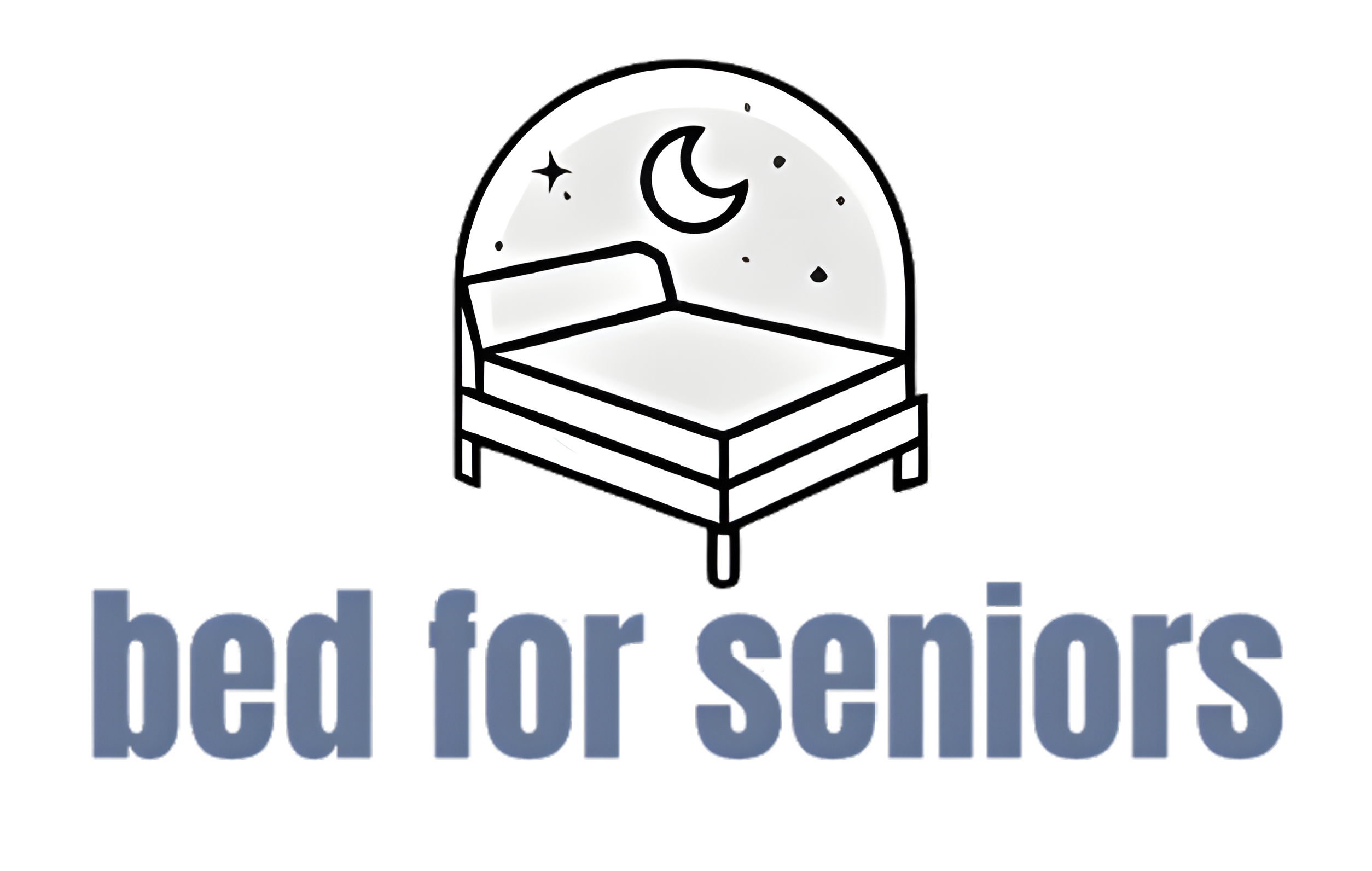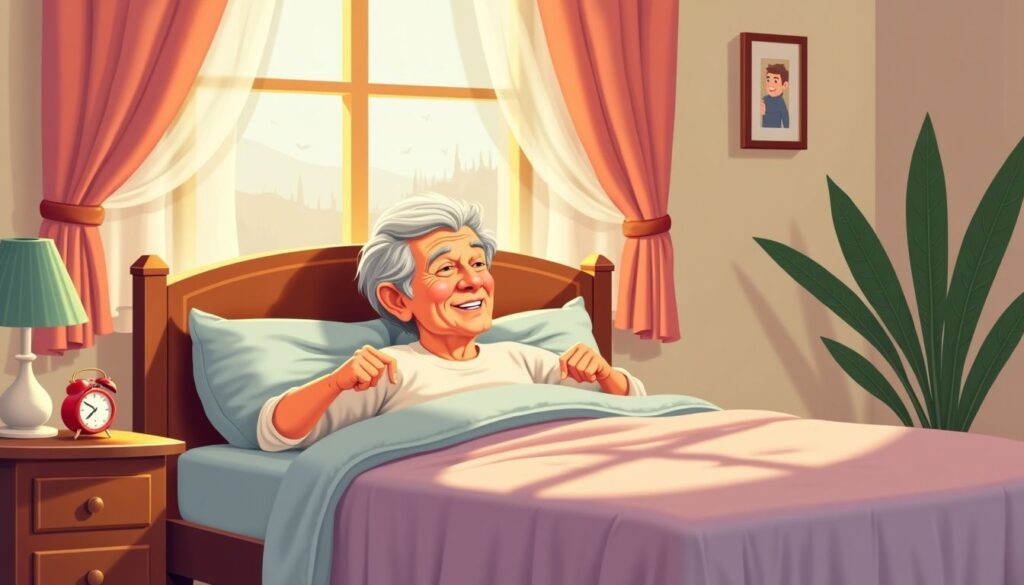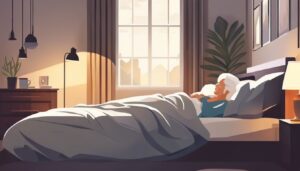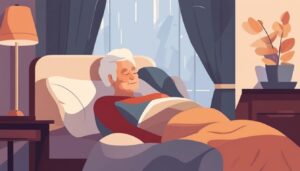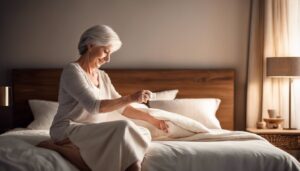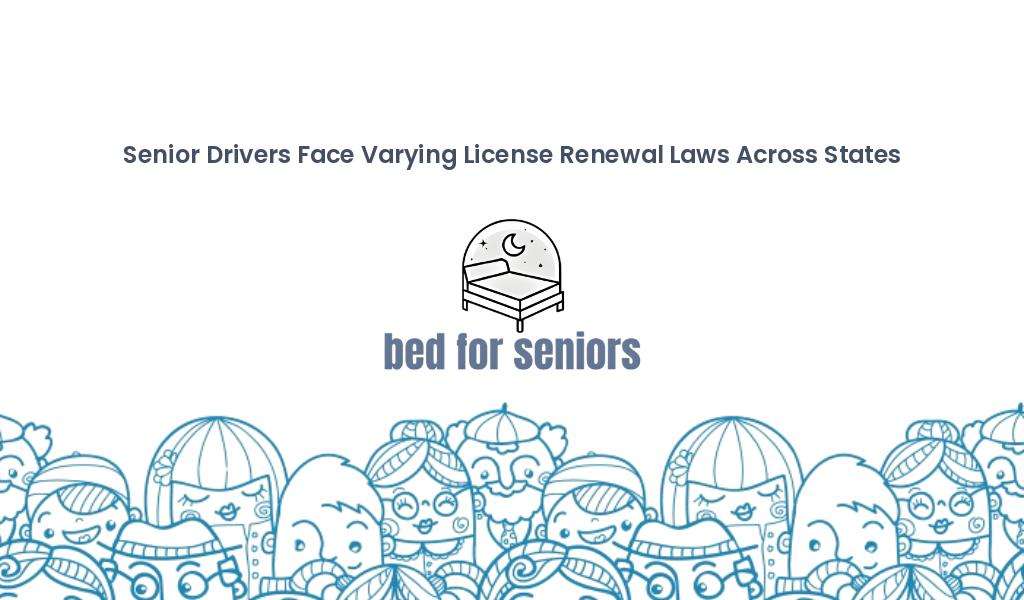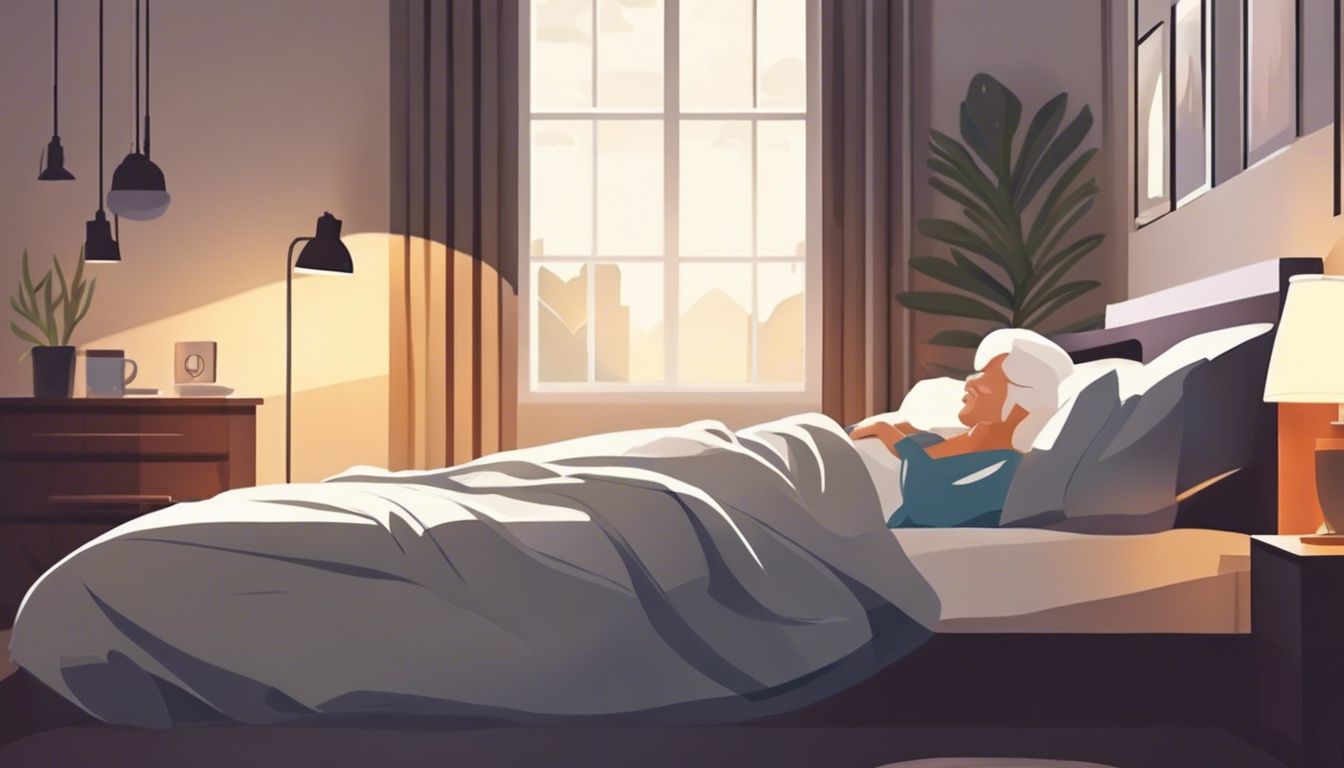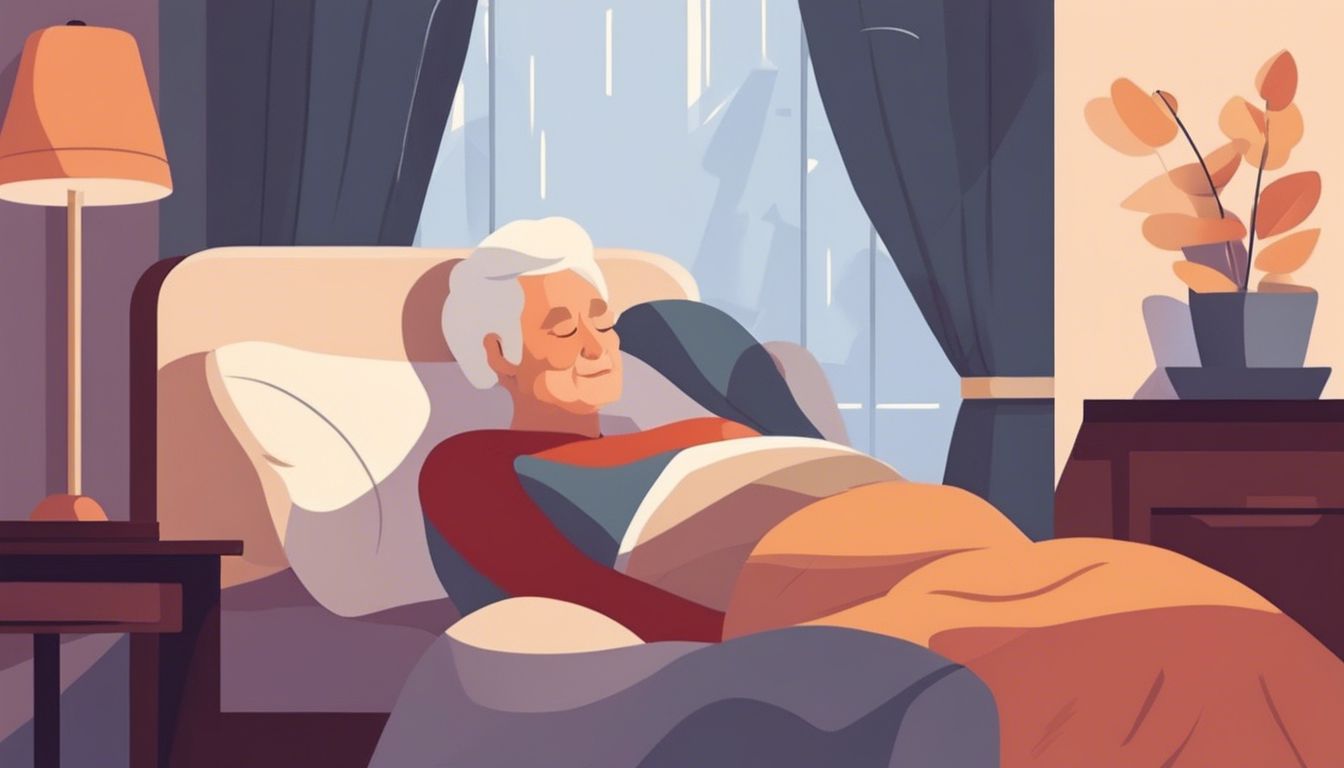Waking up early is common for the elderly. A fact: their sleep patterns change with age. This article shows why and offers tips to manage it. Keep reading—let’s explore.
Key Takeaways
- Elderly people wake up early because their sleep pattern changes as they age. They don’t get as much deep sleep and their internal clocks shift earlier.
- Health issues like sleep apnea and restless legs syndrome can disturb seniors’ sleep, making them wake up early. Reduced melatonin and higher cortisol levels also impact their ability to stay asleep.
- Environmental noises and lifestyle factors affect how well elderly people sleep. Stress, anxiety, and conditions like Alzheimer’s also disrupt normal sleep patterns.
- Simple habits such as maintaining a consistent sleep schedule, improving the sleeping environment, and avoiding caffeine can help manage early waking in seniors.
- Talking to doctors or specialists about managing health conditions or using medications correctly can improve seniors’ overall quality of rest.
Changes in Sleep Patterns with Age
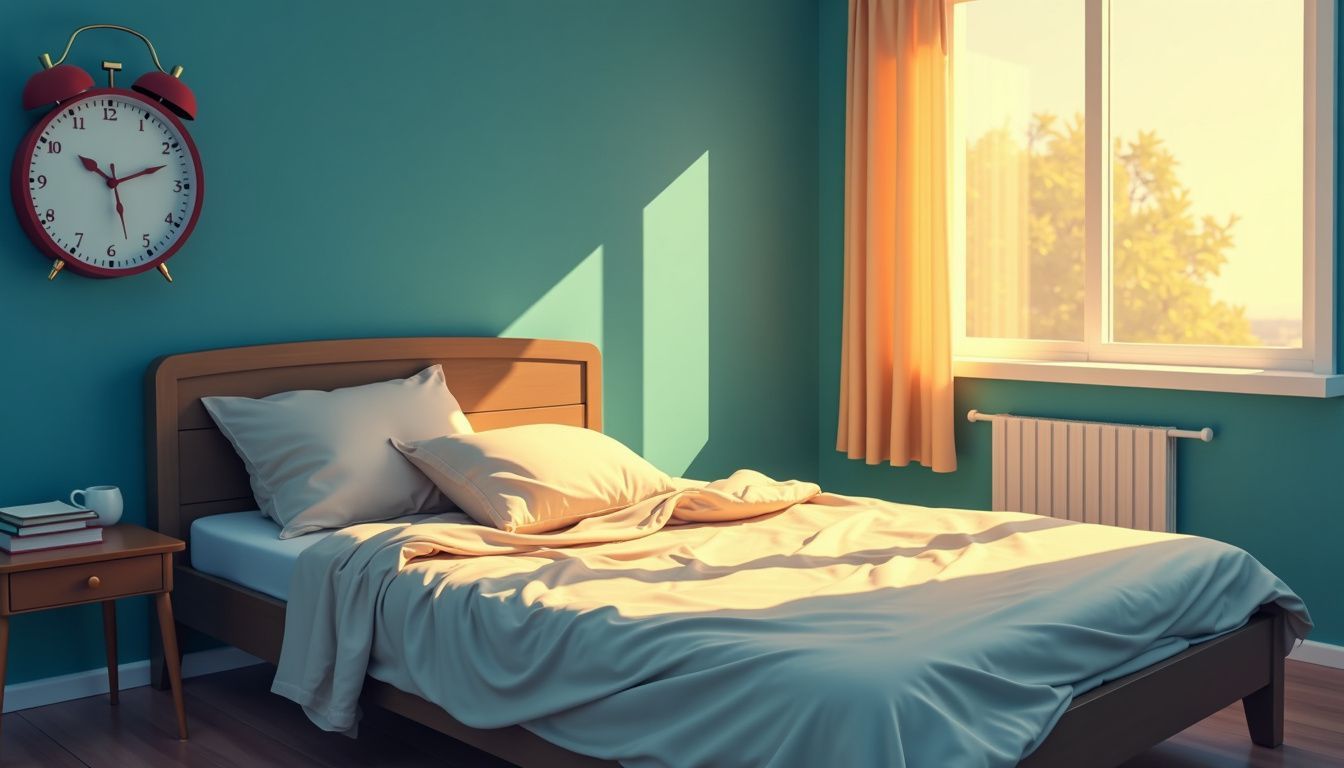
As we age, our bodies shift how we sleep. We find ourselves waking up earlier, often because we spend less time in deep sleep and our internal body clocks—that tell us when to sleep and wake—change too.
Decreased deep sleep stages
Older adults get less deep sleep. Their bodies spend less time in stages that refresh the mind and body. This means they wake up more during the night. They feel less rested.
Deep sleep helps fix muscles and clear waste from the brain. Without it, seniors may face issues like memory problems or feeling tired all day. They might struggle with tasks that were once easy for them.
Altered circadian rhythms
Old adults often wake up early because their internal clocks — known as circadian rhythms — change. These rhythms tell our bodies when to sleep and wake up. As people age, these rhythms shift earlier.
This means seniors feel sleepy in the evening and wake up early in the morning.
Their internal clock doesn’t match young people’s anymore. This mismatch leads to less sleep at night and waking up at dawn. It’s a part of aging that we can’t avoid. Knowing this helps caregivers plan better routines for rest and activity during the day for seniors.
Health Conditions Influencing Early Awakening
Some seniors wake up early because of health issues. Problems like sleep breathing disorder, tense legs feeling, and body movements during sleep can disturb their rest.
Sleep apnea
Sleep apnea gets more common as people get older. For adults over 60, it’s 1.7 times more likely than for those aged 40 to 60. This sleep disorder causes breaks in breathing during sleep.
These pauses can happen many times at night. They make sleep shallow and lead to waking up early.
This condition affects old people’s sleep quality a lot. It stops them from reaching deep sleep stages. Because of this, they might feel tired during the day even if they slept long enough at night.
Talking to doctors who know about sleep problems can help manage this condition.
Restless legs syndrome
Restless legs syndrome (RLS) troubles up to 25% of older adults. It makes their legs feel uncomfortable, mainly at night. This feeling forces them to move their legs often. Moving helps for a short time.
RLS can break their sleep and make it hard to fall asleep again.
Next, we’ll talk about periodic limb movement disorder.
Periodic limb movement disorder
Periodic limb movement disorder makes legs kick during sleep. This happens up to every 20 to 40 seconds, all night. Elderly feel tired the next day because it messes with deep sleep.
Doctors say this leads to waking up early.
This disorder often walks hand in hand with restless legs syndrome but is different. It’s not caused by feelings or needs like stretching but starts during certain sleep phases. To deal with it, doctors might use medications and suggest better sleep habits.
Making changes can help seniors get more rest at night and wake up later.
Hormonal Changes Impacting Sleep
As people age, their bodies make less melatonin, making it harder to stay asleep. Stress also causes cortisol levels to go up, which can wake them up too early.
Reduced melatonin production
Older adults often have less melatonin in their bodies. This hormone helps us sleep. Without enough melatonin, they may not sleep as well or as long. They might wake up early.
To help them sleep better, we can use light therapy and avoid caffeine before bed. Light therapy can increase melatonin at night. Avoiding caffeine makes sure they are not too awake to fall asleep.
Changes in cortisol levels
Just as the body makes less melatonin at night, it also shows changes in cortisol levels. Cortisol is a hormone that wakes you up and gives you energy. As people get older, their bodies don’t control this hormone well during sleep.
This can mess up their sleep patterns.
High cortisol levels in the morning can make seniors wake up too early and not fall back asleep. It’s like having an internal alarm clock that goes off sooner than needed. Because of this, they might face sleep disturbances more often.
Environmental and Lifestyle Factors
Bright lights and loud sounds make it hard for older adults to stay asleep. Changing their room setup and routine can help them sleep better.
Increased sensitivity to environmental noise
Old people hear noises more during sleep. Cars, dogs and even a ticking clock can wake them up. This is because they get more sensitive to sounds around them as they age. Noise makes good sleep hard for them.
Things like using earplugs or a white noise machine help block out sounds. Keeping windows closed also reduces noise from outside. These steps improve their sleep quality despite the noise.
Changes in sleep environment
Noise isn’t the only issue. A new bedroom can also make it hard to sleep. Moving homes or into care places stresses seniors a lot. This stress messes with sleep. The room’s feel matters too—like how warm it is and how much light gets in.
These changes shake up their sleep quality big time.
Simple things like adjusting room temperature and blocking out extra light can help fix this problem. Making sure their bed and pillows are comfortable does wonders, too. It’s all about making them feel safe and relaxed in their new sleeping spot.
Psychological and Neurological Factors
Stress and worry can keep seniors awake, leading to early mornings. Diseases like Alzheimer’s also change how the brain handles sleep, causing disruptions.
Anxiety and stress
Anxiety and stress hurt sleep. Older people often find these feelings hard to shake off. This can make their sleep worse, making it hard for them to stay asleep. Doctors say anxiety leads to more awakenings at night.
Stress also messes with the sleep-wake schedule, causing seniors to wake up early.
Simple steps can help manage anxiety and stress in older adults. Regular exercise and cutting down on caffeine are good starts. Talking to someone about worries helps too. These actions improve sleep quality by reducing anxiety levels, helping seniors rest better at night.
Impact of dementia and Alzheimer’s disease
Dementia changes how elderly sleep. It messes with their body clocks, leading to trouble sleeping at night. This means they wake up early. Alzheimer’s makes this worse by adding to the sleep problems.
People with Alzheimer’s often find it hard to stay asleep, which makes them tired during the day.
These conditions affect deep sleep stages less in seniors. They also make the brain less good at telling night from day, hurting their sleep cycles further. Caregivers see that dementia and Alzheimer’s lead to more naps and confusion at nighttime for older adults.
These issues call for special care in managing their sleep routines.
Effects of Sleep Deprivation on Seniors
Sleep deprivation in older adults causes irritability, mood swings, and memory issues. It makes them more likely to fall or have accidents. Seniors need enough rest to keep their minds clear and prevent injuries.
Not sleeping enough increases heart disease risk in older people. It also leads to depression and makes it harder for them to handle pain. Good sleep is crucial for seniors’ health and well-being.
Practical Tips for Managing Early Awakening
For those dealing with early waking, simple habits can make a big difference. Try keeping a regular sleep time and reducing screen use before bed. Talking to a doctor about safe sleep aids or treatments may also help.
Keep reading for more ways to manage mornings better.
Sleep hygiene practices
Good sleep hygiene means setting a routine. Go to bed at the same time each night. Limit looking at screens before sleep. This helps the brain know it’s bedtime. Make sure the sleeping place is quiet and dark.
Exercise during the day improves how well someone sleeps and getting sunlight does too. Both make falling asleep easier at night.
Keep caffeine and naps in check. Too much coffee or sleeping during the day can make it hard to sleep later on. Aim for light activities in the evening to prepare for bed.
These steps are direct ways to better rest, especially for seniors who wake up early often.
Appropriate use of sleep medications
Sleep medicines can help older adults sleep better. But, it’s key to talk to healthcare providers first. These medicines work differently in older adults than younger ones. So, getting advice from a doctor is a must.
They know the right kind and dose of medicine that won’t harm.
Also, mixing sleep meds with other treatments could be bad for health. The doctor will make sure this doesn’t happen. They check all medicines someone is taking before saying yes to sleep medicine.
This stops any bad effects and helps seniors sleep safely and well.
Consultation with sleep specialists
Talking to sleep experts is a smart move. They know how to handle sleep problems and can check if there’s a need for medication changes. These doctors look at all aspects of sleep issues, including insomnia or obstructive sleep apnea.
They make sure seniors get the right help, focusing on finding what causes their early waking.
Sleep specialists also advise on lifestyle changes that might help. They suggest good sleep habits and may recommend tools like CPAP machines for those with breathing pauses during sleep.
By working closely with these experts, seniors can improve their rest and overall health.
Conclusion
Elderly wake up early due to changes in their bodies and lives. Their sleep gets shallower, making them more sensitive to noise. Health issues like sleep apnea add to the problem. They make less melatonin, a sleep hormone.
Also, they often feel stressed which affects sleep. To deal with this, seniors can follow good sleep habits and see doctors if needed. Getting enough rest is key for their health.
For more insights on how sleep deprivation affects seniors, be sure to check out our detailed article Understanding the Effects of Sleep Deprivation in Seniors.
FAQs
1. Why do elderly people often wake up early?
Elderly individuals may wake up early due to changes in their sleep-wake pattern and total sleep time, influenced by the suprachiasmatic nucleus (SCN), our internal clock. Factors like arthritis, diabetes, and cardiovascular conditions can also affect their sleep schedule.
2. Can certain substances cause early waking in older adults?
Yes, stimulants such as nicotine can disrupt the stages of sleep leading to fragmented sleep or even insomnia. It’s best for seniors to limit screen time and avoid these substances close to bedtime.
3. What role does rapid eye movement (REM) play in an elderly person’s sleeping habits?
During REM phase, most dreaming occurs and the brain is active; however disruptions during this stage – known as rapid eye movement sleep behavior disorder – could lead to difficulties with falling asleep or staying asleep.
4. How do menopause-related issues affect a woman’s ability to stay asleep at night?
Hot flashes after menopause can interrupt a woman’s rest causing them become lighter sleeper or have difficulty falling back asleep once awakened.
5. Are there any medications that might help an elder person maintain a regular sleeping schedule?
Sleeping pills like zolpidem or benzodiazepines may be prescribed by practitioners if necessary but they should only be used under medical supervision due to possible side effects including daytime hypersomnia or nighttime urination (nocturia).
6. Where can I find more reliable information on why elderly people tend to wake up early?
Trustworthy sources include peer-reviewed journals available through National Library of Medicine and fact-checking citations from Sleep Foundation which provide tips for improving bedtime routine among other valuable insights into better understanding senior’s unique challenges related with adequate rest.
